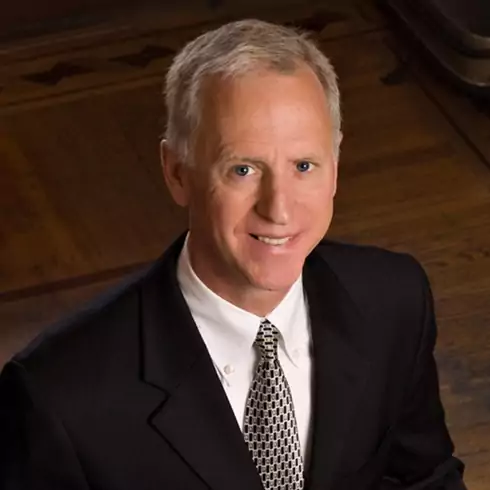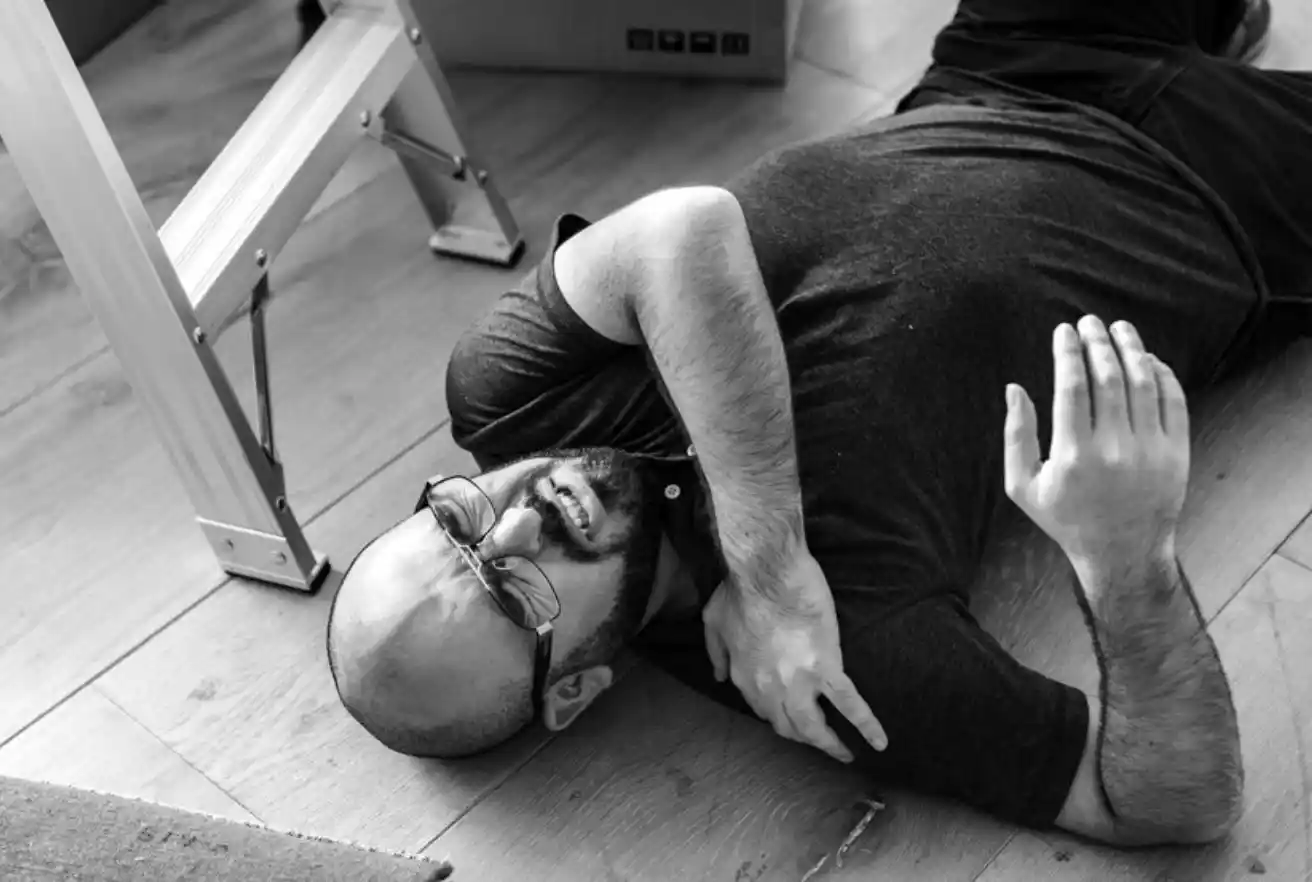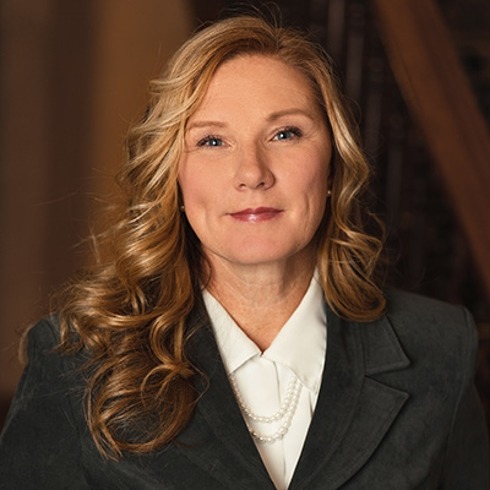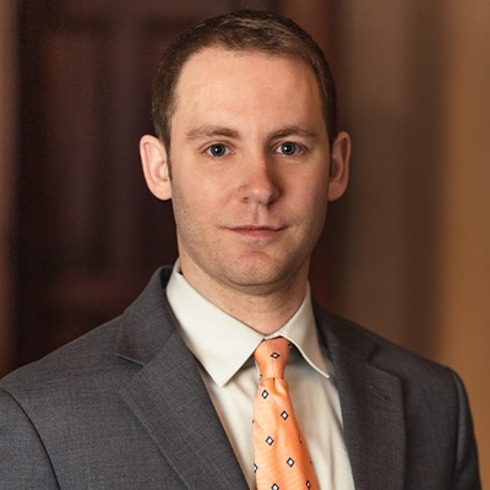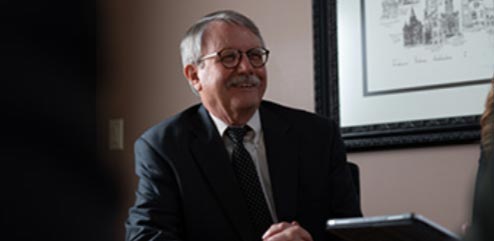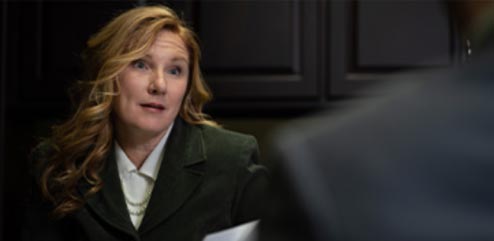Indianapolis Premises Liability Lawyer
Helping people is our priority
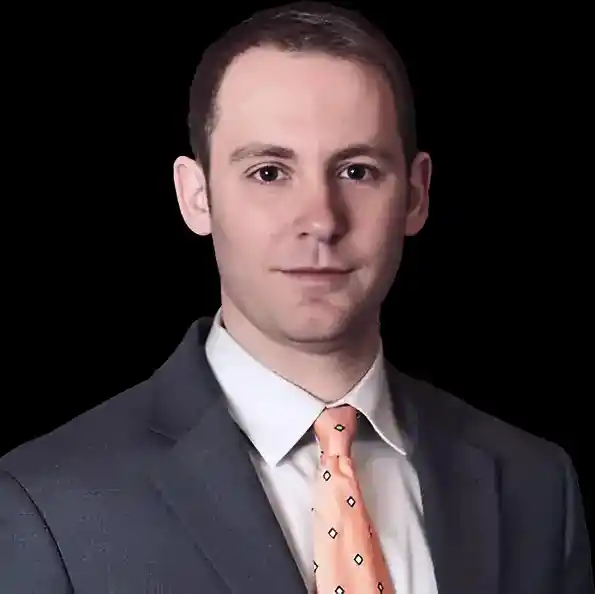


Since 1993

Committed to Dependable Premises Liability Representation
The Indianapolis premises liability lawyers at Christie Farrell Lee & Bell are experienced and confident fighting for clients in premises liability cases.
If you have suffered an injury, it’s important that you have the right legal team in your corner.
When cases of injury or wrongful death occur, understanding where it occurred is just as important as the how and the why. Indiana property owners have a duty to provide safe premises for everyone on their property. Indiana property managers are also responsible for visitor or passerby safety. Property owners, managers, renters, and more may all be considered negligent when someone is injured, depending on the circumstances.
Speak with a personal injury lawyer today. Call: 317-488-5500
The Basics of Premises Liability Injury in Indianapolis
In its simplest definition, an Indiana premises liability case comes about when a person gets injured on another party’s property. However, there is only a case when the Indiana property owner, manager, renter, or someone else responsible for safety was negligent or malicious in their behavior. Plus, that negligent behavior must be the cause of the injury.
There are many instances that could lead to a premises liability lawsuit. A shopper could slip on ice in a store’s parking lot. A partygoer may fall on a wet pool deck. A hiker could be injured by a tripwire on someone’s property. Regardless, in all cases, the injured person is either an Invitee, Licensee, or Trespassing.
An invitee is someone who has been specifically invited onto the premises by the property owner.
- For Indiana residential injury cases, this would be someone attending a party, fixing plumbing or wiring, or otherwise coming at the property owner’s request for a party or playdate.
- For Indiana commercial property injury cases, this would include customers and patrons of a business.
A licensee is an individual who steps foot on the property for their own convenience. They weren’t usually directly invited by the owner but are permitted to step foot on the premises. This permission can be written, spoken, or implied.
- For Indiana premises liability residential properties this might be someone who has been given permission to camp on someone’s land or use their pool.
- For Indiana premises liability commercial purposes, this would be someone passing through a public parking lot of a strip mall without looking to enter the businesses.
A trespasser is assigned to anyone who enters someone’s property without permission or implied consent. Whether or not someone intended to do harm or commit a crime while trespassing, this label still applies if the property owner does not know or implicitly allow the presence of another person. For instance, walking or hiking through someone’s private Indiana property (like a yard) without their permission or knowledge is trespassing, even if you are just passing through.
Indiana Property Owner Negligence – Slip & Falls
Slip and fall accidents can happen to nearly anyone, anywhere. According to statistics published by the National Floor Safety Institute, falls are the number one cause of emergency room visits, with slip and falls making up around 8 million ER trips. The same statistics found that the most common slip and fall injury is a bone fracture.
These accidents can occur in countless ways, both on private and public property. There may be uneven paving and sidewalks, an object left out, a hole, or walkways slick from rain or snow. Snow and ice removal is an essential duty of Indiana property owners. Even floor mats and other trip hazards can be a contribution. Regardless of how the fall occurred, there are two important laws in Indiana personal injury to keep in mind: the statute of limitations and “shared fault.”
Indiana Slip & Fall Statute of Limitations
A statute of limitations law defines how long after an incident occurred may an individual file a claim. According to Indiana Code, an injured person must file a premises liability claim within two years of an injury.
Shared Fault in Indiana
Sometimes a slip and fall is entirely the fault of a negligent property owner. Other times, it’s a combination of unsafe conditions and lack of attention on both sides. Though it’s complex, the concept of shared fault in an Indiana personal injury case means that as long as an injured person is 50% or less responsible for the accident, they can make a case. This is exactly why finding the right Indianapolis premises liability lawyer is so vital, because they can ensure your case is handled correctly.
Poor Maintenance of Indianapolis Premises
When someone owns or oversees a property, they need to ensure that the grounds are safe and properly maintained. If not, and someone is injured on their dangerous property, there’s a chance the careless property owner may be responsible and liable for damages.
Though these injuries can be caused by a wide array of issues, here are some common injuries seen due to poor upkeep of a property:
- Slip and falls due to icy conditions, wet floors, slippery surfaces, faulty steps or handrails, or unsafe grounds.
- Electrocution due to poorly maintained wiring
- Burns due to exposed wires or water pipes
- Injury due to falling objects like limbs or roofing materials
- Exposure to hazardous materials or sewage leading to illness
- Cuts on sharp metal edges like siding, gutters, and railings
Although these are a few examples of premises liability, there are many more and there are nuances to each injury accident. To move forward with a personal injury case, you’ll need documentation and evidence. This could come in several forms, all of which a personal injury lawyer can help you assemble for the legal process.
If you or someone you love has been injured due to unsafe conditions on a property, documenting your injuries and contacting a personal injury attorney is your best option.
Display Proper Signage
All public and semi-public pools must have the following signage in these various spots around the premises:
- DANGER – HAZARDOUS CHEMICALS: Must be posted on or near the entrances to the room where chemicals are stored or used
- Warning – No Lifeguard on Duty: These signs apply to semi-public pools
- No Swimming Alone. Children Under 14 Years of Age and Non-swimmers Shall Not Use the Pool Unless Accompanied by a Responsible Adult: This is a common sign for any state, and as such will need to be posted around Indiana pools.
- POOL CLOSED: These signs only need to hang after hours or during unexpected closings.
- No Diving: A very important sign, these should be displayed in all spots that water is 5 feet deep or less, or anywhere else diving is not allowed
Monitor Entrances & Exits
Pool owners and operators need to have a way to monitor and control those who enter and use the grounds. All pools, both public and semi-public, are required to be wholly enclosed by a barrier that is no less than six feet high, uses lockable gates that are equipped with both self-closing and self-latching mechanisms and do not have any openings greater than four inches in diameter.
Maintain Proper Chemical & Chlorine Levels
A study by the Center for Disease Control found 80% of public pools had at least one health or safety violation. 58% of samples collected from filters at public pools tested positive for E. coli and Pseudomonas aeruginosa. Both bacteria can cause significant illness. For that reason, Indiana pools must be set at very precise levels to reduce the chance of a waterborne illness.
Types of Accidents That Can Lead to Premises Liability Claims
There are many ways someone can be injured due to unsafe property conditions. Whether the harm is minor or life-altering, it’s crucial to take every accident seriously and seek immediate medical care. Common premises liability incidents include:
Complete a Free Case Evaluation form now
Slip and Fall Accidents
Slip and falls are among the most frequent premises liability cases. These incidents occur when a person loses their footing due to unsafe surfaces—such as wet floors, uneven sidewalks, loose carpeting, or icy walkways. They often happen in places like grocery stores, restaurants, hotels, or public buildings.
Click to contact us today
Injuries from Faulty Equipment
Visitors can suffer injuries when property equipment is broken or improperly maintained. Examples include malfunctioning elevators and escalators, defective gym equipment, unstable shelving in stores, or broken appliances in laundromats. Property owners may be liable if these hazards are not addressed promptly.
Injuries Due to Lack of Security
When a property owner fails to provide adequate security, visitors can become victims of assault or other crimes. For instance, if a hotel neglects to fix broken locks or surveillance systems and someone is attacked, the property owner may be held legally responsible for failing to protect guests.
If you’ve been injured on someone else’s property, you may have a premises liability case. Our Indianapolis attorneys can help you understand your rights and fight for the compensation you deserve.
Swimming Pool Accidents
Whether it’s an outdoor pool during the summer or an indoor pool at a hotel or waterpark, injuries at pools are a risk. The owners and operators of these pools need to follow state laws to keep guests safe. There are several Indiana pool safety laws that are in place to ensure swimmers are not at risk of personal injury or wrongful death. That’s why our Indianapolis swimming pool lawyers are here to help if the need arises to file a lawsuit. Some of those necessities are:
Common Locations Where Premises Liability Claims Arise
Premises liability claims can stem from a wide range of properties, both public and private. Regardless of the size or purpose of the location, property owners and managers have a legal duty to maintain a safe environment for guests and visitors. Some common sites where accidents frequently occur include:
-
Retail Stores
-
Hotels and Resorts
-
Shopping Malls
-
Banks
-
Colleges and Universities
-
Concert Halls and Event Venues
-
Sports Stadiums and Arenas
-
Amusement Parks
-
Museums
-
Restaurants and Bars
-
Hair and Nail Salons
-
Libraries
-
Fitness Centers and Gyms
To pursue a successful premises liability claim, the injured party must demonstrate:
-
The individual responsible for the injury owned, leased, or controlled the property;
-
That individual was negligent in maintaining or managing the premises;
-
The plaintiff suffered harm; and
-
The negligence directly contributed to or caused the injury.
If you were injured on another person’s property and are unsure whether you have a valid claim, speaking with an experienced premises liability attorney is the best next step.
Who Can File a Premises Liability Case?
Premises liability cases in Indiana are based on the principle that property owners and managers owe a duty of care to people legally on their property. However, not every person injured on someone else’s property is eligible to file a claim. The right to pursue compensation depends on your legal status as a visitor and whether the property owner breached a duty that resulted in your injury.
Invitees
These are individuals invited onto the premises for the mutual benefit of both parties, such as customers at a store or clients at a business. Property owners owe invitees the highest duty of care, including the obligation to routinely inspect the property and warn of or fix known hazards.
Licensees
Licensees are social guests or people entering a property with permission but for their own purposes, such as visiting a friend’s home. Owners must warn licensees of known dangers, but aren’t required to inspect for or fix unknown ones.
Trespassers
Trespassers generally have no legal right to be on the property and are owed only minimal protection. However, there are exceptions, particularly involving children, under the Attractive Nuisance Doctrine, which may hold owners liable for injuries caused by dangerous features like unsecured pools or trampolines that can lure minors.
Legal Elements Required to File
To proceed with a premises liability case, the injured party must prove:
- Duty of care was owed by the property owner.
- A breach of that duty occurred (such as failure to fix a known hazard).
- The breach directly caused the injury (e.g., a fall due to uncleaned spills).
- The injury resulted in actual damages, such as medical costs, lost wages, or pain and suffering.
Our premises liability lawyers work tirelessly to help injury victims build strong, evidence-backed claims and secure maximum compensation under the law, delivering results with professionalism, compassion, and unwavering dedication to justice.
Liable Parties in Premises Liability Claims
The Indiana law is unambiguous but also complex in terms of determining negligence in premises liability accidents. Indiana code stipulates that for a premises liability claim to be successful, the plaintiff must demonstrate that the property owner, or another party responsible for the property’s upkeep, failed in their duty to ensure the safety of the premises, directly leading to the injury. This legal framework helps us identify who can be held responsible in your case, including:
Property Owners
The most straightforward liable party in a premises liability case is often the property owner. Whether it’s a slippery floor in a shopping mall or a poorly maintained sidewalk leading to a private residence, owners have a legal obligation to ensure their property is safe for those who enter it.
Property Managers and Renters
Not all premises are directly managed by their owners. Property managers, leasing agencies, or renters who have control over the property’s condition and the authority to make or request repairs can also be held liable if their negligence contributes to an unsafe environment.
Businesses and Commercial Entities
In commercial premises liability cases, the business operating on the property may be held liable. This includes situations where the business’s operations contribute to hazardous conditions, such as inadequate cleanup procedures that lead to slip and fall accidents.
Maintenance and Security Companies
Third-party companies hired to perform maintenance or provide security can also be liable. If a security company fails to address known safety risks or a maintenance company neglects its duties, leading to an injury, it can be held accountable under premises liability law.
What’s the Difference Between Personal Liability and Premises Liability?
In the legal context of injury cases, it’s vital to distinguish between personal liability and premises liability to ascertain accountability and possible resolutions. It allows for a more precise identification of faults and responsibilities, leading to fairer outcomes that take into account the specific circumstances surrounding the incident.
Personal Liability
Personal Liability refers to the responsibility an individual has for causing harm to another person, typically through direct actions or negligence. This can include a wide range of scenarios, from a car accident caused by reckless driving to an injury resulting from a personal altercation. Personal liability is tied to the actions of individuals, regardless of where those actions take place.
Premises Liability
Premises Liability, on the other hand, is specifically concerned with injuries that occur due to unsafe conditions on a property. This form of liability doesn’t necessarily stem from the direct actions of the property owner or manager but from their failure to maintain a safe environment. Premises liability covers situations where the condition of the property itself—be it a commercial building, a private residence, or public land—contributes to the injury.
The distinction between these two forms of liability is fundamental in personal injury law, guiding the legal strategies employed to pursue justice and compensation for victims. Our attorneys will guide you through pertinent laws and regulations to secure the most favorable result for your case. During an initial consultation at no cost, we’ll take the time to understand your situation, assess available evidence, and guide you toward the most promising path.
Common Defenses in Premises Liability Cases
Even when a person suffers a serious injury on someone else’s property, property owners and their insurers often raise several legal defenses to avoid paying damages.
1. Open and Obvious Hazard
A common defense is that the danger was so clear that any reasonable person would have seen and avoided it. Courts in Indiana may rule against the injured party if, for example, a “wet floor” sign was present, or the hazard was otherwise clearly visible.
2. Comparative Negligence
If the injured party was partially at fault, such as not watching where they were walking or ignoring warning signs, their compensation may be reduced. In Indiana, victims can recover damages only if they are less than 51% responsible for the incident.
3. Lack of Notice
Property owners may claim they didn’t know and couldn’t reasonably have known about the hazard. This defense applies when:
- The hazard occurred too recently for the owner to discover it (like a spill moments before a fall)
- Regular inspections failed to reveal the danger
- No previous incidents or complaints alerted the owner to the issue
4. Assumption of Risk
This defense argues that the injured party voluntarily accepted the risk. For instance, walking across an icy sidewalk without appropriate footwear after seeing visible ice might be deemed voluntary risk-taking.
5. Trespasser Status
Property owners owe very limited duties to trespassers and may not be held liable unless exceptions, such as child trespassers under the Attractive Nuisance Doctrine, apply.
At Christie Farrell Lee & Bell, we are fully prepared to anticipate and counter these defenses. With decades of courtroom experience and strategic legal insight, our attorneys build compelling arguments rooted in evidence and Indiana law.
Recoverable Damages in Indiana Premise Liability Claims
Injured plaintiffs in Indiana premises liability cases may be eligible to recover compensation for a wide range of economic and non-economic damages, including:
- Medical expenses
- Lost wages and other income
- Permanent scarring and disfigurement
- Physical and emotional pain and suffering
- Wrongful death (if a property-related hazard caused the death of a loved one)
Contact Our Experienced Indianapolis Premises Liability Lawyer
If we can prove that the owner’s negligence was a factor in the accident that caused your injury where the accident occurred, then you have the right to fair compensation. The law is on your side in Indiana, you just need to discuss your case with us so that we can help you. Christie Farrell Lee & Bell has over 40 years of experience with injury law in Indianapolis, and surrounding cities, and has won numerous awards for our litigation work. Please call us today so we can help get you justice.
Indianapolis Office
951 N Delaware St Indianapolis, IN 46202
Phone: 317-593-9202

Get a FREE Case Review
Schedule Your Free Consultation

